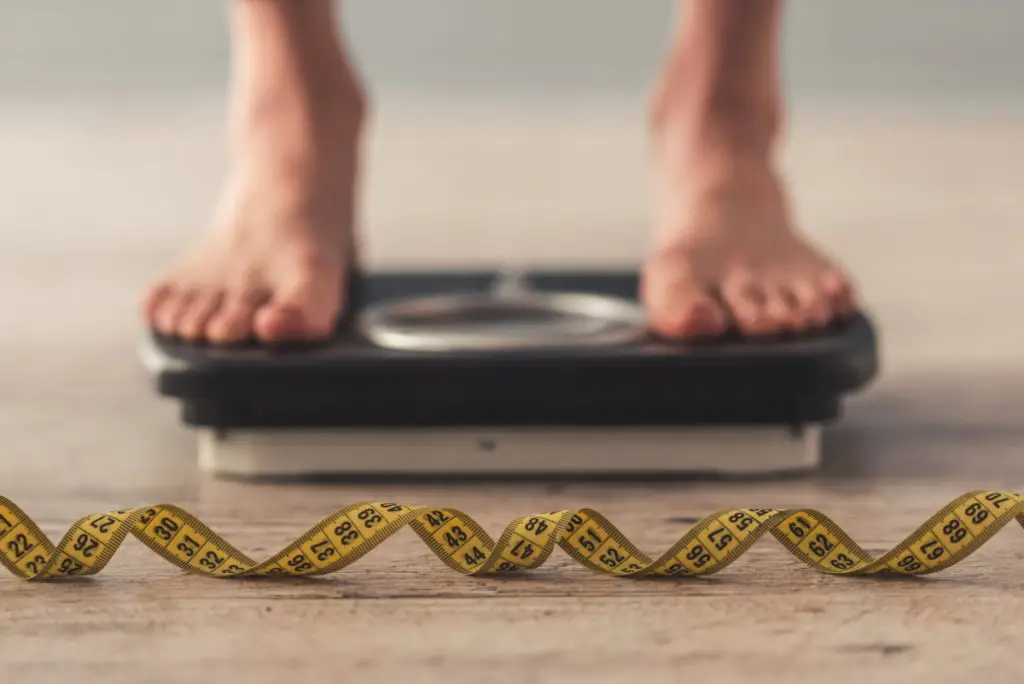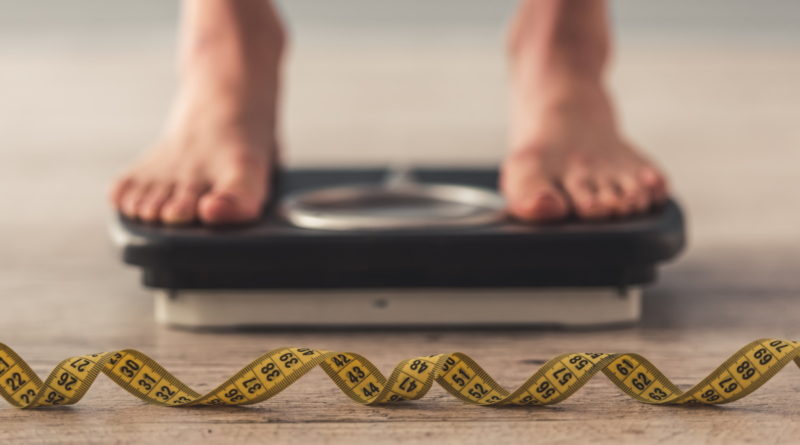Clutter and Weight Gain: 4 Tips to Combat It
Disclosure: This post contains affiliate links. For more information see the Affiliate Disclaimer.

Is it possible that there’s a relationship between clutter and weight gain?
As difficult as it might be to accept, the amount of clutter in your home, can have an impact on your weight.
With weight loss as one of the top new year’s resolutions, decluttering can also help you to achieve your weight loss goals.
In 2015, professional organizer Peter Walsh wrote a book called, Lose the Clutter, Lose the Weight: The Six-Week Total-Life Slim Down. In the book, he outlines that clutter “invades your home, your body, and your mind.”
Let’s take a closer look at the relationship between clutter and weight gain.
Clutter Can Trick Your Brain
A cluttered home can easily make you think that this is the natural state of your world.
When you normalize the state of disarray in your everyday life, it leads you to believe that this is how it is meant to be. And, the decision to change, seems difficult and overwhelming. On some level, it feels like it’s too late to make a significant difference in your life.
All things considered, it can be a struggle to fight against this preconceived notion.
Thankfully, one of the pieces of advice that Peter Walsh gives is that it’s not too late to start a clutter-free lifestyle.
Yes, a clean slate is possible.
Now, it’s not going to happen overnight. Nevertheless, with some determination and staying power, you can work towards achieving a decluttered home.
So, what does all of this have to do with weight gain? How can a cluttered living space lead you to make some unhealthy food choices?
Stress Can Lead To Emotional Eating
Encountering the various stressors in life is unavoidable. However, clutter adds to stress.
When you’re in a cluttered living space, it can be difficult to focus. And, it can be difficult to operate at your maximum level of productivity.
One of the foremost ways we cope with stress is to reach for a “fun” snack, AKA junk food.
Emotional eating – something I believe we’re all too familiar with – is a coping mechanism that helps to fill some emotional needs.
This makes you turn to your cravings, despite not being hungry in the first place. These empty calories are harmful to our overall health, especially if this happens very often.
To combat the emotional eating triggers and break the cycle, decluttering your home is a good first step. How about creating a relaxing environment free of stress, triggers, and unhealthy snacks?
Here are 4 tips to get you started.
1. Declutter Your Kitchen Counter
As previously mentioned, snacking is one of the ways that we cope with the chaos in our lives. Let’s face it, mindless munching can provide some immediate stress relief. Unfortunately, this habit can have negative effects on our health.
To start off, remove or minimize the unhealthy snacks and the containers that are taking up space on your kitchen counters.
Things such as cookie jars filled with cookies, candy dishes containing a candy assortment, bags of potato chips, or, one of my favorites, boxes of cereal – the unhealthy kind.
Instead, place a fruit bowl on your counter, with your favorite fruits and/or some trail mix in the former candy dishes. And, reach for these snacks when you have the munchies.
2. Declutter Your Pantry and Fridge
Apply the same rules to your pantry and fridge, that you used for your kitchen counter.
The concept of out of sight, out of mind doesn’t work for everyone. What I mean by this is if your pantry and fridge contain junk food, it’s easy to fall into the temptation of opening the doors to junk food central for some instant gratification.
So, look through your pantry, fridge, and freezer to see the unhealthy food that you have been storing for your home. Get rid of these items and replace them with healthier options, just as you did for your kitchen counter.
This is by no means an easy undertaking. However, as time progresses, you’ll find that healthier food and beverage options, will satisfy you and have a positive impact on your overall health.
3. Declutter Your Free Spaces
More free space means more places to move around. With many of us working from home, exercising at home is also taking place.
But how can you exercise when so many things are in your way?
You need to find a space to lay down your yoga mat, or, to use your newly purchased kettlebells. It’s important to clear the space as you would clear your mind before you practice.
Assign spots for exercise in your home. This will help you get into the wellness zone and mindset. You may have a bunch of tools and fitness accessories that require a bit more space, for example, the previously mentioned kettlebells, or a skipping rope.
Even if you plan on engaging in some simple walking exercises, you’ll need to clear the hallway areas.
Creating clutter-free spaces to exercise will undoubtedly help you in the long run.
4. Declutter Your Closet
Getting rid of things in your closet can afford you more space.
We can all relate to buying clothing a size too small, because of a lofty fitness goal. And, not accomplishing that goal in the desired time frame. However, the clothing is still in the closet taking up space.
Make a conscious effort to declutter your closet of things that don’t fit you anymore. Having a large number of clothes that don’t fit can be discouraging. So, learn to love who you are right now, and don’t get distracted by what might be, such as losing 2 dress sizes in the next few months.
See more on how to straighten out your closet.
Recap
Consequently, while the relationship between clutter and weight gain exists, there are ways to combat this.
As a reminder, here are 4 tips:
- Declutter your kitchen counter
- Declutter your pantry and fridge
- Declutter your free spaces
- Declutter your closet
Implement them and the results will follow.
This may take some effort. Anything worthwhile does.
